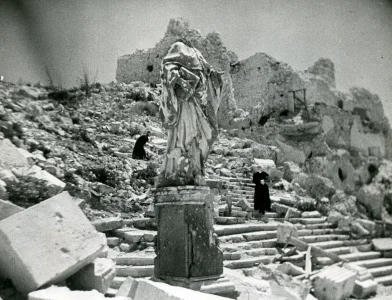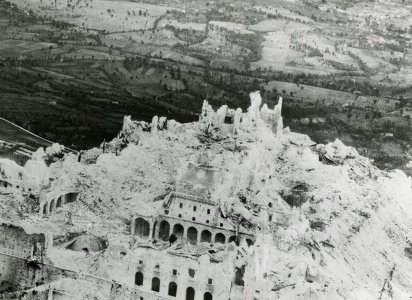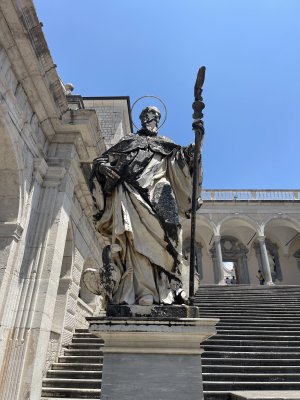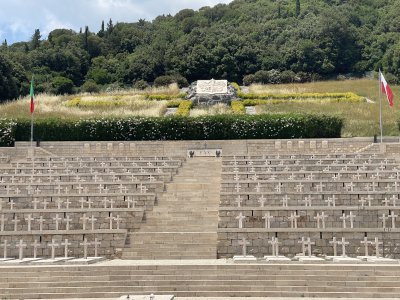Blizzard
Member
- Joined
- Dec 10, 2012
- Messages
- 4,367
Meant to post this yesterday. Not a MOH, but no shortage of valor...maybe worthy of having his name on a ship?:





In the Pacific US submarines killed more Japanese than the USMC and US Army in WWII.
American Subs Were a Far More Lethal Force in the Pacific War Than Previously Known
A couple things.
First, great article. Who knew?
Second, 'we' also killed more US and allied POWs with subs than the Marines and Army did; of course, we did not know.
Third, those are amazing statistics for about 260 submarines in the Pacific.
I listened to an interview a while back with a WW2 sub guy, said they'd go out for a few weeks, back for a few days; out for a week, back for a few days....basically rinse and repeat. The deployments without real schedules must have been exhausting.
US submariners had a 22% casualty rate, U-boat crew were 75-80%. It pays to be a winner, but even a 1 in 5 chance of dying or becoming a POW is mind blowing today.
Those numbers are nuts. I think similar to but a bit worse than bomber crews in Europe. I know I could not have done it.
Yet, they flew day after day.US bomber crews had a 1 in 4 chance of completing 25 missions without being killed, wounded, or a POW. 75 casualty rate, same as the U-boat crews.
Madness. Absolute madness.
Yet, they flew day after day.
I know they tried to give the crews a break now and then, but I've seen several stories about Big Week where crews were flying 6 and 7 missions in as many days. That generation would never open up about their emotions, but even still them mentioning the fatigue and stress meant they must have been zombified basket cases after that stretch.
Fast forward to Vietnam and the same thing happened, only with fighters and light attack going downtown and the Trail bringing its own horrors to play.
I have zero doubt if called upon today our AF, Navy, and Marine aviators would perform the same. They would take the fight to whoever and keep flying and we already know the line dogs would work 18-20 hour+ days if needed.
I'd love to compare Marine 03xx to bomber crew losses in WWII though.
I have a book about Naval aviation during VN, something about Yankee Station, some A-4 and A-6 pilots discussed two 4-hour missions a day, the A-6 guys also at night and in crappy weather.
I tried to find a wheelbarrow once that’s large enough to fit the balls of WW2 Air Crew. I was unable to find one.Yet, they flew day after day.
I tried to find a wheelbarrow once that’s large enough to fit the balls of WW2 Air Crew. I was unable to find one.
I know they tried to give the crews a break now and then, but I've seen several stories about Big Week where crews were flying 6 and 7 missions in as many days. That generation would never open up about their emotions, but even still them mentioning the fatigue and stress meant they must have been zombified basket cases after that stretch.
Fast forward to Vietnam and the same thing happened, only with fighters and light attack going downtown and the Trail bringing its own horrors to play.
I have zero doubt if called upon today our AF, Navy, and Marine aviators would perform the same. They would take the fight to whoever and keep flying and we already know the line dogs would work 18-20 hour+ days if needed.
I'd love to compare Marine 03xx to bomber crew losses in WWII though.
I read that the 8th Army Air Force lost more men than The Marines in the pacific. Which is just mind boggling to me.Something(s) a lot of people forget or don't know is that A) the planes weren't even close to reliable as the planes in the 70's, much less today. B) Navigational aids? In my war?
The number of a/c we lost just forming those large 200, 500, 1000 plane raids into Europe from foggy, rainy UK airfields must be in the hundreds. A crew of 8-10 per plane makes for unhealthy numbers. Add to that those that went off course never to be seen again or like some a/c found in Libya, Egypt (Lady Be Good and others), and random islands in the Pacific. Dead reckoning and Wx issues killed thousands.
And we haven't even discussed mechanical failures or Achilles heels like the radiator on a P-51.
You are spot on, that wheelbarrow ain't big enough.
